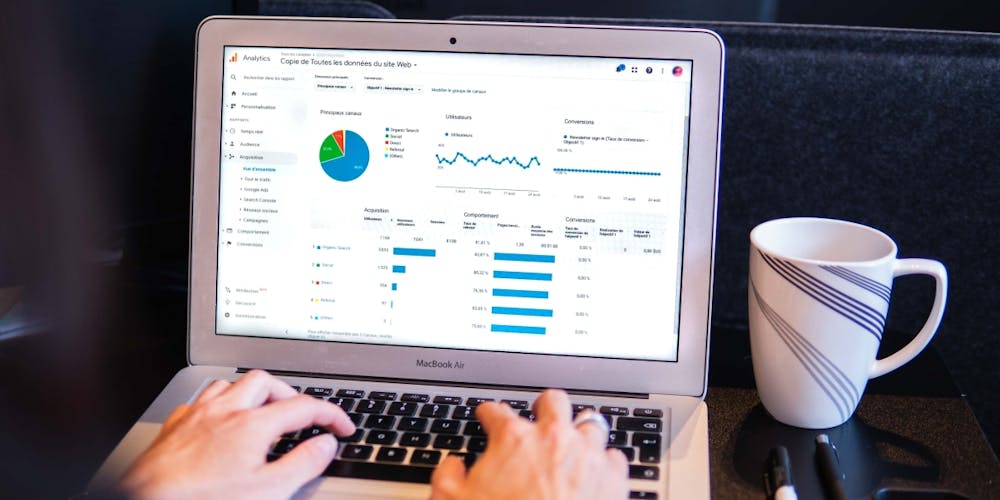tech-advice — Fri Nov 05 2021
5 Key Analytical Skills That Would Set You Up for Success: Steps to Analytical Thinking
Post by — Joy Krinbut

Whether you are a professional, an entrepreneur, an employer or an employee, you would be faced with a challenge or problem that you need to solve.
According to a recent research, analytical skills were identified as a priority skill by a moderately high degree of industries in their 2019 Skills Forecasts.
This means that Analytical skills are in high demand in many industries. A lot of job vacancy postings are requesting for candidates with Analytical skills such as problem solving, critical thinking, troubleshooting, research and data analysis.
These are skills that help you solve problems, create good solutions and take the right action. So learning these skills would increase your success in your business, career and life in general.
In this post, we will look at what is analytical skills, 5 key analytical skills that can set you up for success and 4 steps to analytical thinking.
What is Analytical Skill?
Analytical skill help you recognise, breakdown and solve both complex and uncomplicated problems. It allows you to research and find answers to issues and also in solve the problem on ground.
You can achieve that through your ability to apply logical and critical thinking to breaking down complex problems into smaller and manageable problems.
Analytical skills can be applied in almost every situation ranging from creating or improving of products, identifying customer's needs, processes, relational issues and so on.
5 key Analytical Skills that Can Set You Up for Success
There are several Analytical skills that would be valuable to you. Here are my top 5 Analytical skills that would set you up for success:
1. Critical Thinking

This is an important skill that is required and important in every field and sphere of life. Critical thinking skill helps you analyse information and make the decision. A critical thinker is able to identify problems as well as solutions.
Critical thinking may include
- Classifying
- Decision making
- Evaluating
- Judgement
- Data interpretation
2. Data Analysis

Data analysis is a vital part of analytical thinking. When a problem is identified, it is important to know how to review and analyse the data that is gotten. Data analysis is important to arriving at the right decision.
Here is a list of the different types of data analysis:
- Cost analysis
- Credit analysis
- Critical analysis
- Financial analysis
- Policy analysis
- Predictive analytics
- Prescriptive analytics
- Process analysis
- Qualitative analysis
- Quantitative analysis
- Return on investment (ROI) analysis
3. Research

This is a vital part of analytical thinking. Getting lots of information and data is key to solving a problem.
It is important to learn how to gather the right information and data to be able to arrive at the right solution.
This may involve reviewing spreadsheets, researching online, collecting data, and looking at competitor information.
Analytical research skills include:
- Investigation
- Metrics
- Data collection
4. Communication

It is important to be in constant communication with your relevant sources while identifying problems, carry out research and solving them.
When a problem or solution is identified it is important to communicate it out to an individual, team or company that may be concerned. This is vital to achieving the end goal.
Analytical communication skills include:
- Active listening
- Reporting
- Teamwork
- Oral communication
- Written communication
- Conducting presentations
5. Problem-solving

When the problem has been identified, it is important to figure out solutions from the findings of your research.
You will use analytical thinking skills to sort and organize data you discovered during the research process to find a reasonable and effective solution.
Some key problem-solving skills include:
- Analysis
- Research
- Creativity
- Communication
- Dependability
- Decision making
Analytical Thinking Steps
Here are the four steps to analytical thinking
1. Identify the Problem
What do you actually need to solve? A lot of people jumps to solving an issue without truly identifying what the problem really is. This can lead you to solve the symptom instead of the actual problem.
For example, a company is trying to sell more of its product, focusing on how to price their product to sell more is only a small part of the challenge because there are a lot of reasons why a product is selling or not.
Such reasons might include, the needs of the consumer, marketing strategies as well as competitors products. All these issues would have to be properly addressed in order to solve the problem.
Identifying the problem is vital to solving the problem. If the problem is not identified there cannot be a solution. Once you have identified the problem, this leads us to point number 2.
2. Decide How to Solve the Problem
This involves setting up the problem-solving approach. What are the tools, methods or techniques and what data are you going to used to solve the problem?
Are there people that need to be involved in the problem-solving process? Or do you have all the resources you need to solve the problem?
It is important to design a good strategy to solve the problem, it makes the whole problem-solving process easier.
You may have to break down the problem into smaller components. For instant from our example in the first point, you may identify a lot of different things that need to be analysed or solved to be able to solve the problem which is low sales. One of such information that you may have to analyse is your marketing strategy, the needs of the consumer and your competitor’s product. This leads us to step number 3
3. Analyse the Problem
This involves using the step and techniques that you’ve picked up in point number 2 along with the data and information you have gathered.
In the absence of concrete information, you may have to make the best assumptions you can and document them.
Documenting is important because if the results of the assumption don’t work you will know that you are likely to have made a mistake that would need to be more modified.
4. Solving the Problem
Now that you’ve gathered the necessary information and have analysed them. This stage involves taking your data and findings actionable solutions. You bring the data and information you have, analyse it and decide what you are going to do about it.
Conclusion
Every industry needs analytical thinkers who can identify problems, evaluate those problems and develop solutions. Analytical skills are important to the success of your business, career or job. We at Mentortribes would love to help you develop analytical skills that are in high demand. Signup at www.mentortribes.com and set yourself up for success.